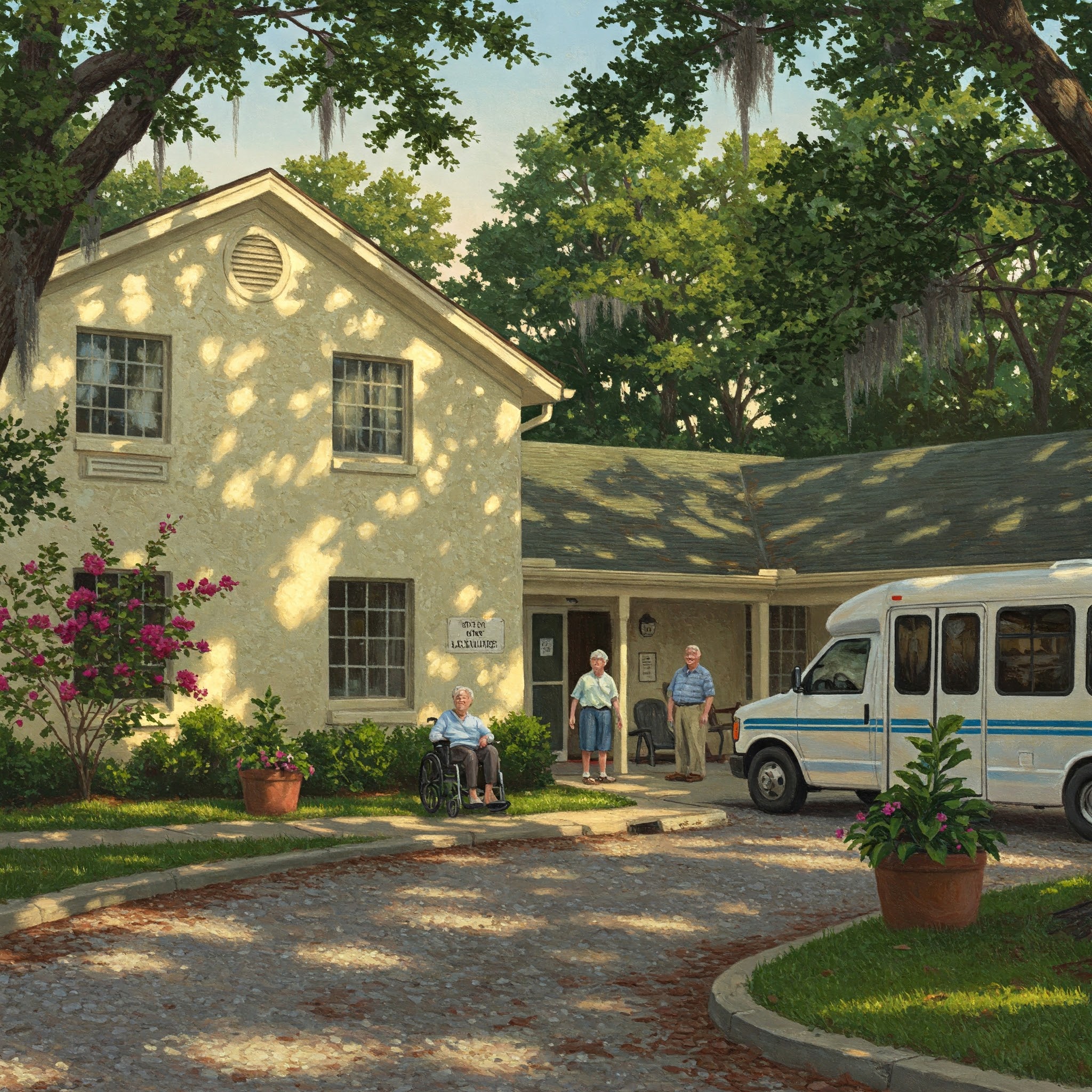By Garret DeReus
Nursing homes have a legal obligation to provide accessible facilities for residents and visitors with disabilities. This article examines the requirements under Title III of the Americans with Disabilities Act (ADA), focusing on physical accessibility requirements for bathrooms and parking areas, and discusses legal remedies available when nursing homes fail to comply with these standards.

The Critical Importance of ADA Compliance in Nursing Home Facilities
Nursing homes in Louisiana and throughout the United States must comply with Title III of the Americans with Disabilities Act (ADA), which requires that places of public accommodation be accessible to individuals with disabilities. This requirement is particularly important in the nursing home context, where a significant percentage of residents have mobility limitations or other physical disabilities.
Physical Accessibility Requirements for Nursing Homes
Under Title III of the ADA, nursing homes must remove architectural barriers where such removal is “readily achievable,” meaning easily accomplished without much difficulty or expense. For newly constructed facilities or those undergoing renovations, more stringent accessibility standards apply. These requirements include but are not limited to:
- Accessible entrances and exits
- Adequate doorway widths for wheelchair passage
- Accessible routes throughout the facility
- Proper handrails and grab bars
- Appropriate counter and sink heights
Bathroom Accessibility: A Critical Safety Concern
Bathrooms present significant accessibility challenges and injury risks for nursing home residents with disabilities. Properly designed accessible bathrooms must include adequate turning space for wheelchairs to allow residents to maneuver safely. Grab bars must be properly positioned near toilets and in shower areas to provide essential support during transfers and while bathing.
Roll-in showers or transfer seats are necessary for many residents with mobility impairments, allowing them to bathe with dignity and reduced risk of falls. Sinks should be installed at appropriate heights with knee clearance to accommodate wheelchair users. Lever-style faucet handles should be used as they are easier to operate for individuals with limited hand dexterity. Proper toilet height is essential for ease of transfer from wheelchairs and to reduce strain during use.
Failure to provide these accommodations may violate the ADA and could significantly increases the risk of falls and injuries. When bathrooms lack proper grab bars or have inaccessible features, residents may attempt dangerous transfers or maneuvers that can result in serious injuries, including fractures, head trauma, or worse.
Parking Lot Accessibility Requirements
Nursing home parking lots must also meet specific ADA requirements to ensure safe access for residents and visitors with disabilities. These include:
- The correct number of accessible parking spaces based on lot size
- Van-accessible spaces with proper access aisles
- Spaces located on the shortest accessible route to an accessible entrance
- Proper signage identifying accessible spaces
- Smooth, stable surfaces free of hazards
- Curb ramps or accessible routes from parking to entrances
Inaccessible parking areas create significant barriers to access and increase injury risks. When individuals with mobility impairments must navigate across uneven surfaces or cannot safely exit vehicles due to inadequate space, they face heightened risks of falls and other injuries.
Why Compliance Matters: The Realities of Nursing Home Demographics
The need for ADA compliance in nursing homes is underscored by resident demographics. According to data from the Centers for Disease Control and Prevention’s National Center for Health Statistics, approximately 75% of nursing home residents require assistance with mobility, and many use wheelchairs, walkers, or other mobility devices. This high prevalence of physical disabilities makes accessibility not just a legal requirement but an essential safety measure.
When facilities fail to meet accessibility standards, residents may:
- Be unable to move independently throughout the facility
- Face increased fall risks when attempting to navigate inaccessible areas
- Experience reduced quality of life and independence
- Suffer preventable injuries that can lead to further health complications
The Importance of Advocating for Your Rights
Advocating for accessibility rights—whether for yourself or a loved one—is essential to ensuring dignified, safe care in nursing home settings. When accessibility violations go unchallenged, facilities may view compliance as optional rather than mandatory, leading to persistent or worsening conditions for all residents.
Speaking up about accessibility concerns does more than address immediate barriers; it creates lasting change that benefits current and future residents. When one person advocates successfully, entire facilities often improve their practices and policies.
Families should document accessibility issues they observe, communicate concerns to facility management in writing, and be prepared to escalate if necessary. Remember that advocating for these rights is not merely a personal matter—it’s about upholding fundamental legal protections designed to ensure equal access and safety for all people with disabilities.
If a nursing home fails to address legitimate accessibility concerns, seeking legal representation may become necessary. By standing firm on these rights, you help ensure that nursing homes maintain safe, accessible environments that respect the dignity and independence of all residents.
Bizer & DeReus: Advocates for Accessibility
Bizer & DeReus has successfully litigated numerous cases involving ADA violations, from transportation accessibility to public accommodations. Our firm understands the critical importance of accessibility in healthcare settings and is committed to ensuring that nursing homes and other facilities comply with their legal obligations to provide safe, accessible environments for all.
Our extensive experience in ADA litigation includes successful cases against municipalities, healthcare providers, educational institutions, and transportation services. We have secured more than a hundred settlements requiring entities to improve accessibility and we have obtained substantial compensation for clients who have been harmed by ADA violations.
If you or a loved one has encountered accessibility barriers at a nursing home facility or have been injured due to lack of proper accommodations, contact Bizer & DeReus to discuss your rights.